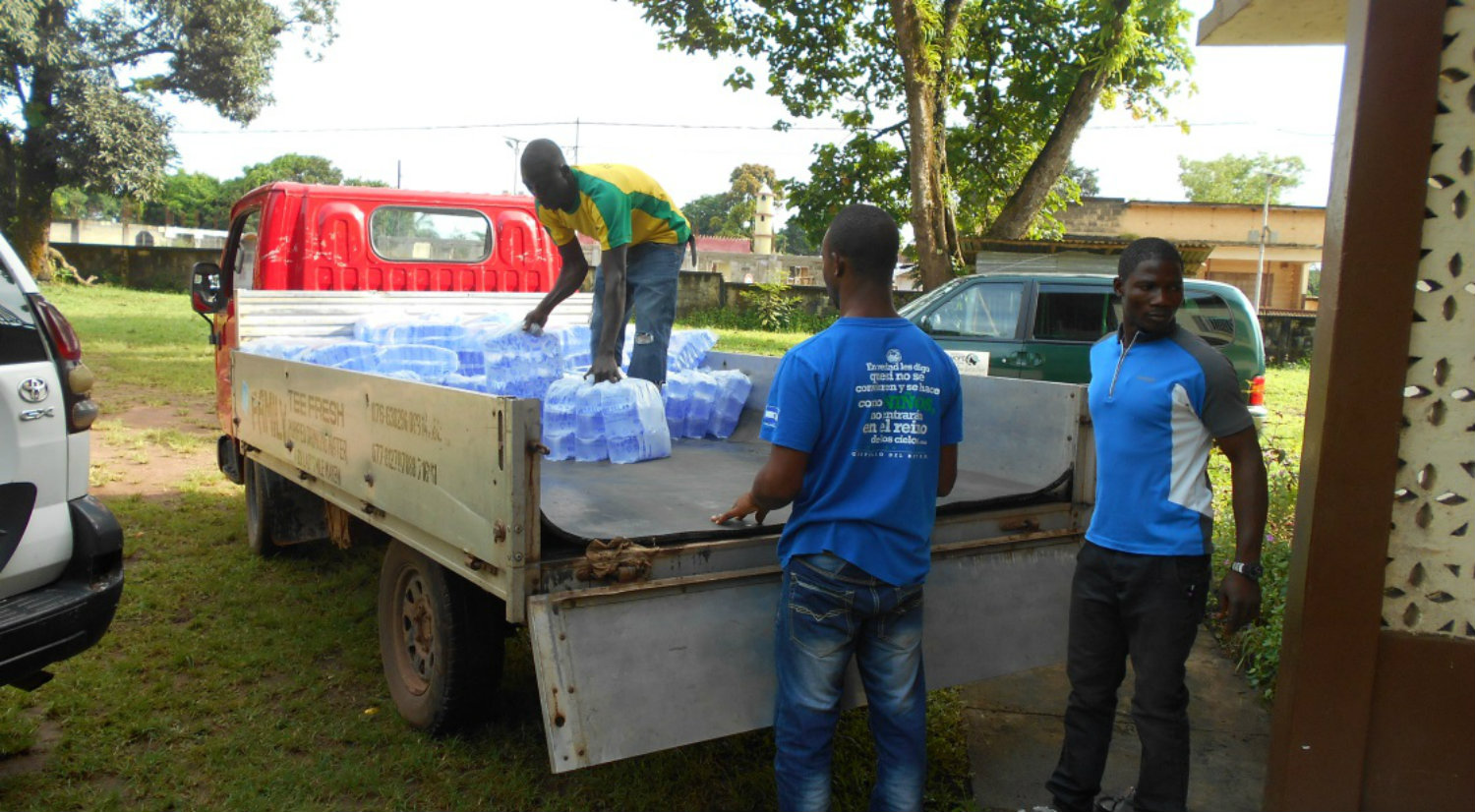By: Carolyn Moore and Lesley-Anne Long
Photo credit: Moses Khanu
Since the launch of the first free Training Health Workers for Ebola webinar series in October 2014, we have seen hundreds of members of the global health community come together to share vital, timely information to save lives and prevent the spread of the disease. This real-time and archived delivery of information has been critical to the continued response. We are excited to be working with partners, IntraHealth International, Ebola Alert, and TechChange, to continue growing this community as the response continues and countries begin to rebuild from the outbreak.
A team of organizations, led by mPowering Frontline Health Workers and IntraHealth International, are coming together to share tools and information on how to support health workers responding to and rebuilding from the Ebola crisis.
Please join us in a three-part webinar series beginning April 1.
Health workers in West Africa have been responding to Ebola since 2013, and, according to the latest WHO situation report, the pace of the outbreak is beginning to decline. This calls for relief and celebration. However, this is far from final for those who have been affected by Ebola.
The virus has left indelible marks on their lives, and their stories are many and severe:
“The Ebola situation is once more improving in terms of infection rate, but the socio-economic needs are enormous.” (Moses Khanu, Pastor, Sierra Leone)
What comes next for Guinea, Liberia and Sierra Leone, the three most affected countries? And how can countries nearby and in the region plan for future potentially deadly outbreaks?
Health workers remain at the center of community response and support. At the same time, the governments and international organizations that support health workers are seeking answers for how they can restore health services in West Africa, strengthen health systems, and prepare for future health emergencies.
What’s next for Ebola affected countries?
Many organizations are working closely with all actors across the health sector. In our second series of Training Health Workers for Ebola webinars in April, we will have a group of colleagues who have been working in the affected countries talking about lessons learned and planning for rebuilding and strengthening health systems.
We invite you to join the discussion in the webinars.
Reviewing lessons learned, and looking ahead
These webinars will focus on tools and strategies that health workers, as well as the governments and organizations that support them, can use to continue the response, protect their communities and help rebuild health systems. Free training and information resources are concurrently being posted in the Ebola Resource Center http://www.hrhebolaresources.org/
Please join us in the webinars! Here are the details:
Webinar Schedule:
April 1: Working with Youth, Volunteers, and Vulnerable Populations
April 8: Community Mobilization and Preparedness Planning
April 15: Effective Use of Data
All live sessions will be held from 10.00 – 11.00am EDT.
These webinars will bring together more than 15 international health organizations, led by mPowering Frontline Health Workers and IntraHealth International.
Registration and more information are available here. The webinars are open to all, and will build upon the presentations and discussion in the first Training Health Workers for Ebola series.
All of the webinars will be available for viewing at www.techchange.org after the air dates.
The webinar series has been made possible by the generous support of the USAID-supported Health Communication Capacity Collaborative.



